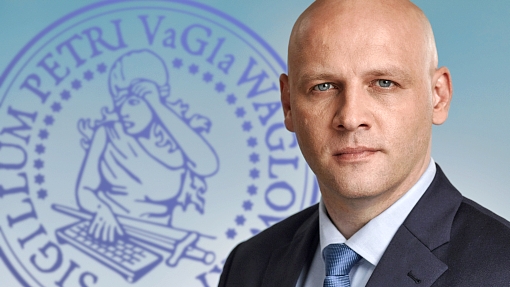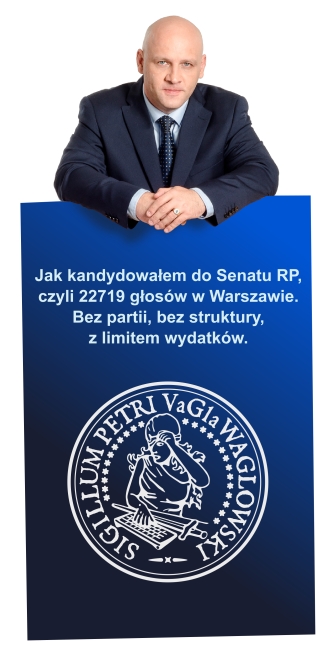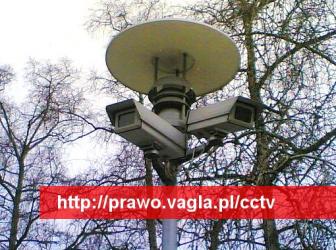Odmowa udzielenia informacji organizacji pozarządowej stanowi naruszenie art. 10 Europejskiej Konwencji Praw Człowieka
14. kwietnia 2009 roku Europejski Trybunał Praw Człowieka w Strasburgu wydał wyrok w sprawie Társaság a Szabadságjogokért v. Hungary (no. 37374/05), uznając, że działająca w interesie publicznym organizacja pozarządowa (działająca jako swoisty "watchdog") ma - na gruncie art. 10 Konwencji (wolność wyrażania opinii) - prawo dostępu do informacji, zaś odmowa udzielenia tej organizacji informacji stanowi naruszenie przysługujących jej praw. Istotne w tym rozstrzygnięciu jest również to, że zdaniem Trybunału wolność prasy realizowana jest nie tylko przez media, ale również przez organizacje pozarządowe, które mogą inicjować debatę publiczną w istotnych dla obywateli sprawach. To dość ważny wyrok (również dlatego, że organizacja starała się uzyskać dostęp do treści skargi konstytucyjnej i to węgierski Trybunał Konstytucyjny odmówił udzielenia informacji).
Węgierska organizacja Társaság a Szabadságjogokért (stowarzyszenie działające na rzecz praw obywatelskich) z siedzibą w Budapeszcie, której celem jest promocja podstawowych praw człowieka, jak również budowa społeczeństwa obywatelskiego, a w której polu zainteresowania leży szczególnie polityka związana z produkcją i handlem narkotykami (drug policy) złożyła do Europejskiego Trybunału Praw Człowieka skargę w związku z tym, że w 2004 roku węgierski Trybunał Konstytucyjny oraz sądy powszechne odmówiły temu stowarzyszeniu prawa do informacji.
Stowarzyszenie pragnęło uzyskać dostęp do akt sprawy toczącej się przed Trybunałem, w której to sprawie jeden z węgierskich parlamentarzystów pytał Trybunał o zgodność nowelizacji kodeksu karnego (w zakresie przestępstw narkotykowych) z węgierską Konstytucją. Parlamentarzysta zwołał konferencję prasową, wypowiadał się w mediach na temat swojego pytania, zaś organizacja postanowiła uzyskać dostęp do treści skargi konstytucyjnej, powołując się przy tym na art 19 węgierskiej ustawy o ochronie danych osobowych i dostępie do informacji publicznej z 1992 roku. Jednak Trybunał Konstytucyjny Węgier odmówił tej organizacji dostępu do akt, twierdząc przy tym, że dostęp taki nie jest możliwy bez zgody autora skargi skierowanej do tego Trybunału.
W związku z odmową dostępu stowarzyszenie skierowało pozew do Sądu Okręgowego w Budapeszcie (the Budapest Regional Court), by sąd zobligował Trybunał do udostępnienia informacji (w trybie art. 21 ust. 7 ww. ustawy). Tymczasem sprawa dotycząca sprawdzania zgodności z Konstytucją nowelizacji kodeksu zakończyła się i Trybunał Konstytucyjny ogłosił swoje stanowisko, a w związku z tym Sąd Okręgowy umorzył postępowanie (dismissed the applicant's action), uzasadniając jednocześnie, że dostęp do skargi konstytucyjnej nie jest gwarantowany przez węgierską ustawę, gdyż tego typu informacje nie są informacjami publicznymi w rozumieniu tej ustawy. Stowarzyszenie odwołało się od decyzji Sądu Okręgowego. W maju 2005 roku Sąd Apelacyjny utrzymał w mocy stanowisko sądu pierwszej instancji z tą różnicą, że Sąd Apelacyjny uznał skargę konstytucyjną za informację publiczną, jednak taką, która zawiera dane chronione ze względu na prywatność osoby fizycznej (a więc dane, które nie mogą zostać udostępnione bez zgody zainteresowanego)...
Szczegóły tego postępowania można znaleźć w notatce na stronach stowarzyszenia (jeśli ktoś zna węgierski): Pert nyert a TASZ Strasbourgban a magyar állam ellen: történelmi információszabadság győzelem, ale również w treści wyroku Europejskiego Trybunału Praw Człowieka (DOC) (udostępnionego w języku angielskim).
Warto zacytować artykuł 10 Konwencji o ochronie praw człowieka i podstawowych wolności, który chroni nie tylko wolność słowa, ale również prawo dostępu do informacji (w tej konkretnie sprawie zinterpretowane przez Trybunał rozszerzająco):
1. Każdy ma prawo do wolności wyrażania opinii. Prawo to obejmuje wolność posiadania poglądów oraz otrzymywania i przekazywania informacji i idei bez ingerencji władz publicznych i bez względu na granice państwowe. Niniejszy przepis nie wyklucza prawa Państw do poddania procedurze zezwoleń przedsiębiorstw radiowych, telewizyjnych lub kinematograficznych.
2. Korzystanie z tych wolności pociągających za sobą obowiązki i odpowiedzialność może podlegać takim wymogom formalnym, warunkom, ograniczeniom i sankcjom, jakie są przewidziane przez ustawę i niezbędne w społeczeństwie demokratycznym w interesie bezpieczeństwa państwowego, integralności terytorialnej lub bezpieczeństwa publicznego ze względu na konieczność zapobieżenia zakłóceniu porządku lub przestępstwu, z uwagi na ochronę zdrowia i moralności, ochronę dobrego imienia i praw innych osób oraz ze względu na zapobieżenie ujawnieniu informacji poufnych lub na zagwarantowanie powagi i bezstronności władzy sądowej.
Węgry nie kwestionowały samego prawa dostępu do informacji, a jedynie wskazywały ust. 2 przywołanego wyżej art. 10 Konwencji, podnosząc, że państwo mogło wprowadzić pewne ograniczenia w dostępie do informacji.
Zacytuję jednak ten fragment wyroku Trybunału, w którym ujawnia on swoje rozważania i stanowisko:
(...)
C. The Court's assessment1. Whether there has been an interference
26. The Court has consistently recognised that the public has a right to receive information of general interest. Its case-law in this field has been developed in relation to press freedom which serves to impart information and ideas on such matters (see Observer and Guardian v. the United Kingdom, 26 November 1991, § 59, Series A no. 216, and Thorgeir Thorgeirson v. Iceland, 25 June 1992, § 63, Series A no. 239). In this connection, the most careful scrutiny on the part of the Court is called for when the measures taken by the national authority are capable of discouraging the participation of the press, one of society's “watchdogs”, in the public debate on matters of legitimate public concern (see Bladet Tromsø and Stensaas v. Norway [GC], no. 21980/93, § 64, ECHR 1999 III, and Jersild v. Denmark, 23 September 1994, § 35, Series A no. 298), even measures which merely make access to information more cumbersome.
27. In view of the interest protected by Article 10, the law cannot allow arbitrary restrictions which may become a form of indirect censorship should the authorities create obstacles to the gathering of information. For example, the latter activity is an essential preparatory step in journalism and is an inherent, protected part of press freedom (see Dammann v. Switzerland (no. 77551/01, § 52, 25 April 2006). The function of the press includes the creation of forums for public debate. However, the realisation of this function is not limited to the media or professional journalists. In the present case, the preparation of the forum of public debate was conducted by a non-governmental organisation. The purpose of the applicant's activities can therefore be said to have been an essential element of informed public debate. The Court has repeatedly recognised civil society's important contribution to the discussion of public affairs (see, for example, Steel and Morris v. the United Kingdom (no. 68416/01, § 89, ECHR 2005 II). The applicant is an association involved in human rights litigation with various objectives, including the protection of freedom of information. It may therefore be characterised, like the press, as a social “watchdog” (see Riolo v. Italy, no. 42211/07, § 63, 17 July 2008; Vides Aizsardzības Klubs v. Latvia, no. 57829/00, § 42, 27 May 2004). In these circumstances, the Court is satisfied that its activities warrant similar Convention protection to that afforded to the press.
28. The subject matter of the instant dispute was the constitutionality of criminal legislation concerning drug-related offences. In the Court's view, the submission of an application for an a posteriori abstract review of this legislation, especially by a Member of Parliament, undoubtedly constituted a matter of public interest. Consequently, the Court finds that the applicant was involved in the legitimate gathering of information on a matter of public importance. It observes that the authorities interfered in the preparatory stage of this process by creating an administrative obstacle. The Constitutional Court's monopoly of information thus amounted to a form of censorship. Furthermore, given that the applicant's intention was to impart to the public the information gathered from the constitutional complaint in question, and thereby to contribute to the public debate concerning legislation on drug-related offences, its right to impart information was clearly impaired.
29. There has therefore been an interference with the applicant's rights enshrined in Article 10 § 1 of the Convention.
2. Whether the interference was justified
30. The Court reiterates that an interference with an applicant's rights under Article 10 § 1 will infringe the Convention if it does not meet the requirements of paragraph 2 of Article 10. It should therefore be determined whether it was “prescribed by law”, whether it pursued one or more of the legitimate aims set out in that paragraph and whether it was “necessary in a democratic society” in order to achieve those aims.
a. “Prescribed by law”
31. The applicant requested the information, relying on the Data Protection Act which guarantees access to data of public interest. The Government argued that the relevant legislation provided a sufficient legal basis for the interference with the applicant's right to freedom of expression, the treatment of 'personal data' overriding the element of public interest.
32. The Court is satisfied that the interference was “prescribed by law”, within the meaning of Article 10 § 2 of the Convention.
b. Legitimate aim
33. The applicant argued that the restriction could not be said to have served the protection of the MP's rights, since the Constitutional Court had never asked his permission for the disclosure of his personal data. The Government argued that the interference served to protect the rights of others.
34. The Court considers that the interference in question can be seen as having pursued the legitimate aim of the protection of the rights of others, within the meaning of Article 10 § 2 of the Convention.
c. Necessary in a democratic society
35. The Court recalls at the outset that “Article 10 does not ... confer on the individual a right of access to a register containing information on his personal position, nor does it embody an obligation on the Government to impart such information to the individual” (Leander v. Sweden, 26 March 1987, § 74 in fine, Series A no. 116) and that “it is difficult to derive from the Convention a general right of access to administrative data and documents” (Loiseau v. France (dec.), no. 46809/99, ECHR 2003-XII (extracts)). Nevertheless, the Court has recently advanced towards a broader interpretation of the notion of “freedom to receive information” (see Sdružení Jihočeské Matky c. la République tchèque (dec.), no. 19101/03, 10 July 2006) and thereby towards the recognition of a right of access to information.
36. In any event, the Court notes that “the right to freedom to receive information basically prohibits a Government from restricting a person from receiving information that others wish or may be willing to impart to him” (Leander, op. cit., § 74). It considers that the present case essentially concerns an interference – by virtue of the censorial power of an information monopoly – with the exercise of the functions of a social watchdog, like the press, rather than a denial of a general right of access to official documents. In this connection, a comparison can be drawn with the Court's previous concerns that preliminary obstacles created by the authorities in the way of press functions call for the most careful scrutiny (see Chauvy and Others v. France, no. 64915/01, § 66, ECHR 2004 VI). Moreover, the State's obligations in matters of freedom of the press include the elimination of barriers to the exercise of press functions where, in issues of public interest, such barriers exist solely because of an information monopoly held by the authorities. The Court notes at this juncture that the information sought by the applicant in the present case was ready and available (see, a contrario, Guerra and Others v. Italy, 19 February 1998, § 53 in fine, Reports of Judgments and Decisions 1998-I) and did not require the collection of any data by the Government. Therefore, the Court considers that the State had an obligation not to impede the flow of information sought by the applicant.
37. The Court observes that the applicant had requested information about the constitutional complaint eventually without the personal data of its author. Moreover, the Court finds it quite implausible that any reference to the private life of the MP, hence to a protected private sphere, could be discerned from his constitutional complaint. It is true that he had informed the press that he had lodged the complaint, and therefore his opinion on this public matter could, in principle, be identified with his person. However, the Court considers that it would be fatal for freedom of expression in the sphere of politics if public figures could censor the press and public debate in the name of their personality rights, alleging that their opinions on public matters are related to their person and therefore constitute private data which cannot be disclosed without consent. These considerations cannot justify, in the Court's view, the interference of which complaint is made in the present case.
38. The Court considers that obstacles created in order to hinder access to information of public interest may discourage those working in the media or related fields from pursuing such matters. As a result, they may no longer be able to play their vital role as “public watchdogs” and their ability to provide accurate and reliable information may be adversely affected (see, mutatis mutandis, Goodwin v. the United Kingdom, judgment of 27 March 1996, Reports 1996-II, p. 500, § 39).
39. The foregoing considerations lead the Court to conclude that the interference with the applicant's freedom of expression in the present case cannot be regarded as having been necessary in a democratic society. It follows that there has been a violation of Article 10 of the Convention.
(...)
W efekcie Trybunał uznał, że doszło do naruszenia art. 10 Konwencji.
- Login to post comments
Piotr VaGla Waglowski

Piotr VaGla Waglowski - prawnik, publicysta i webmaster, autor serwisu VaGla.pl Prawo i Internet. Ukończył Aplikację Legislacyjną prowadzoną przez Rządowe Centrum Legislacji. Radca ministra w Departamencie Oceny Ryzyka Regulacyjnego a następnie w Departamencie Doskonalenia Regulacji Gospodarczych Ministerstwa Rozwoju. Felietonista miesięcznika "IT w Administracji" (wcześniej również felietonista miesięcznika "Gazeta Bankowa" i tygodnika "Wprost"). Uczestniczył w pracach Obywatelskiego Forum Legislacji, działającego przy Fundacji im. Stefana Batorego w ramach programu Odpowiedzialne Państwo. W 1995 założył pierwszą w internecie listę dyskusyjną na temat prawa w języku polskim, Członek Założyciel Internet Society Poland, pełnił funkcję Członka Zarządu ISOC Polska i Członka Rady Polskiej Izby Informatyki i Telekomunikacji. Był również członkiem Rady ds Cyfryzacji przy Ministrze Cyfryzacji i członkiem Rady Informatyzacji przy MSWiA, członkiem Zespołu ds. otwartych danych i zasobów przy Komitecie Rady Ministrów do spraw Cyfryzacji oraz Doradcą społecznym Prezesa Urzędu Komunikacji Elektronicznej ds. funkcjonowania rynku mediów w szczególności w zakresie neutralności sieci. W latach 2009-2014 Zastępca Przewodniczącego Rady Fundacji Nowoczesna Polska, w tym czasie był również Członkiem Rady Programowej Fundacji Panoptykon. Więcej >>







